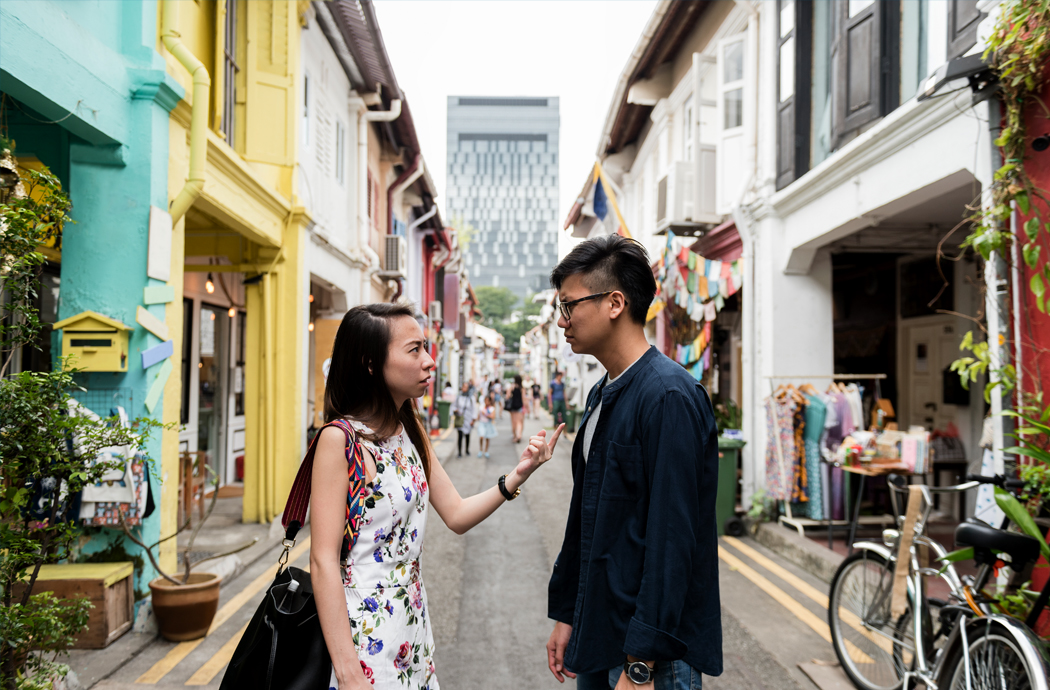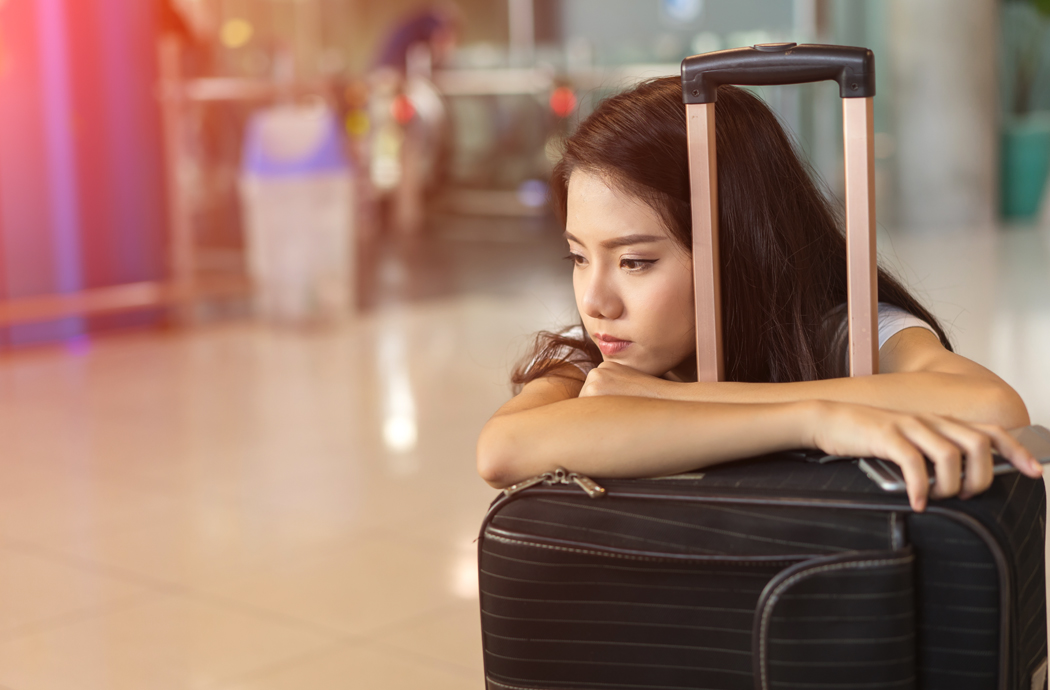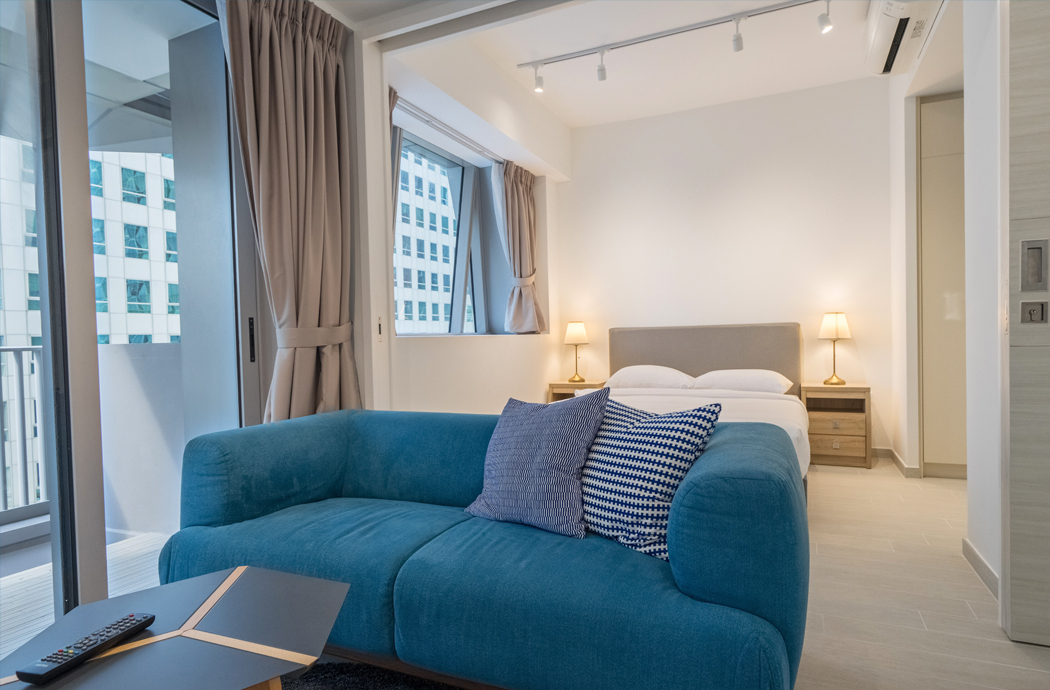Your best defence against culture shock when abroad
Whether you’re working abroad for a long term or short term, culture shock can happen to anyone. Even if you’re not here for a business stay, you can still feel the negative effects of it.
Culture shock is experienced differently by everyone. The adverse signs of it include fatigue, stress and homesickness.
The 4 Stages.
Generally, there are 4 phases a person goes through whilst travelling for work. Most people don’t notice that they’re going through a change until they feel the adverse effects. Now, this is not a step-by-step process, you might find that you experience multiple phases at once, or even skip certain phases.
The Lovey-Dovey phase.

This is the stage where you fall in love with all things new of the country – the language, beautiful sights & sounds, the exotic food, the multicultural people and their way of life. Especially in Singapore, where one of its most enticing lures is food.
Sometimes, for very short trips the culture ‘shock’ ends here and the later, more adverse effects of culture shock don’t have time to set in.
The ‘Urgh’ phase.

Having everything new and exotic might after awhile be surprisingly tedious to handle. This is the stage where the negative effects of culture shock come into play. Things like not knowing what the locals are saying in their native tongue or getting lost because of street names you can’t pronounce. Even weird little Singlish jargons peppering conversations that veer you off the course of comprehension.
This is where the negative symptoms usually set in – feelings of homesickness, fatigue and stress. However, this usually fades away once you get used to things. This what we call…
The Change phase.

At this stage, you start making adjustments to the way you live to suit the culture in Singapore. This is when you start getting used to things, accepting how things are and the way of life.
For example, back home your primary mode of transport might have been a car, but with exuberant car prices and an easily accessible public transportation system, you might find yourself tapping your EZ-Link almost daily.
The Acceptance phase.
Once you get here, you’re a well-seasoned expat. It doesn’t necessarily mean you’ve got a full, deep understanding of the culture in Singapore, you’ve only come to know the tip of the iceberg.
You’re not only accepting the culture and the way of life, but that homesickness and stress are inevitable factors when it comes to working aboard.
The culture shock antidote.
You can easily overcome culture shock if you follow these simple steps. Do your homework even before stepping on the plane, learn about the culture by reading online. Expat Life is a good start, we’re all things Singapore for the discerning expat. You can also start reading the local news like The Straits Times and The Business Times.
Float like a social butterfly, and get rid of the culture shock sting.

Hang out with colleagues, foreign friends or even by yourself exploring the new country you’re in. Go to museums, bars or whatever else the wanderlust in you desires.
Ask the people around you about their culture. What practices to adopt, what is and isn’t allowed. For example, in Singapore, we stand on the left side of the escalator and we put a small article such as a tissue packet to reserve a table at food courts.
Choose a place that feels like a home away from home.

It's what's inside that matters the most.
Furnishing & Space – Choose a large spacious serviced apartment, one you can zen up easily. A corporate accommodation that is tastefully furnished – but not too extravagantly, so you can easily add your own accents to it. You can get candles, mementoes from back home, succulents and whatever else that reminds you of home.
Housekeeping – With all the stresses of the culture shock, you don’t want to come home to cluttered home. With serviced apartments in Singapore like us, housekeeping is provided and you needn’t worry about cleaning up after a long day of work.
WiFi – Feeling homesick? Reconnect with loved ones via video calls or instant messaging. Look for serviced apartments that offer high-speed internet, so you can talk to your loved ones back at home.
Location, location, location – Choose a serviced apartment with a surrounding that’s soothing to you. You might be tempted to pick something close to your office or popular shopping districts, but if you pick something that is close to a park or beach, it can create a calming atmosphere for you to return to after work.
Keep your guard up for the reverse culture shock.
There is also a chance that you might get used to the life here – and fall in love with it. After falling into a habit and getting used to how things are done in Singapore, going back to your home country might be a little difficult. Having to repatriate and adjust to life back at home after you’ve settled here. The same ways to prevent culture shock can be again repeated in your home country.
Share this article with anyone you know who faces culture shock.




